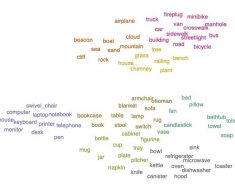
- Challenges to identity and pride. (The vital role of work in sense of identity, pride in achievements, struggle coping with IA and its impact at work.)
- Guilt, shame and ableism. (Guilt, shame and internalized ableism about one’s diminished capacity and its impact at work.)
- Managing perceptions. (Attempts to process and cope with real or imagined perceptions of family and/or colleagues.)
- Grappling with disclosure. (Weighing decisions about whether to disclose condition at work and the potential consequences.)
- Pushing through. (Internal/external pressure to be productive at work, presenteeism, absenteeism.)
- Financial security. (The need to maintain employment to sustain living costs, medical insurance and health care.)
- Mental health impact. (Feelings of stress, anxiety, anger, depression.)
- Personal/professional support. (Support is complex, variable, vital to maintaining work and often inadequate.)
- New perspectives, transformations, meaning-making. (Evolving priorities and values, shift in perspective, prioritizing self-care and turning to spiritual practices and other forms of meaning-making.)
Source: Read Full Article





